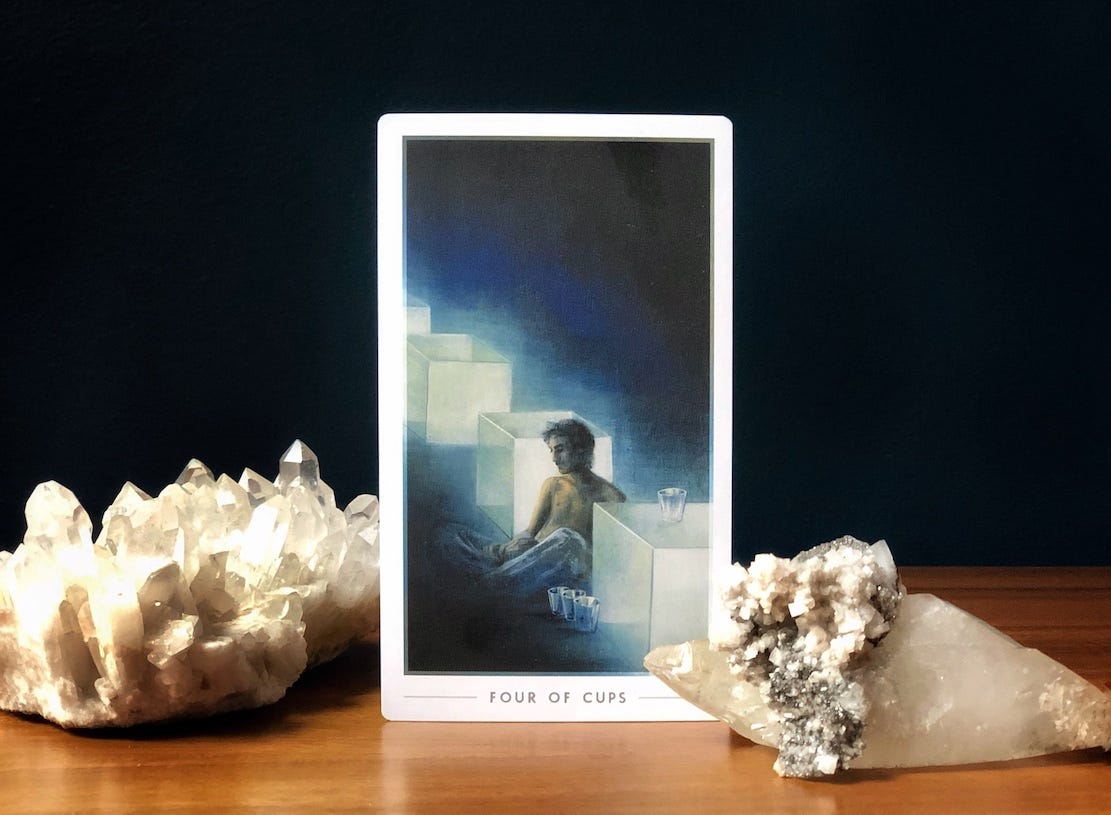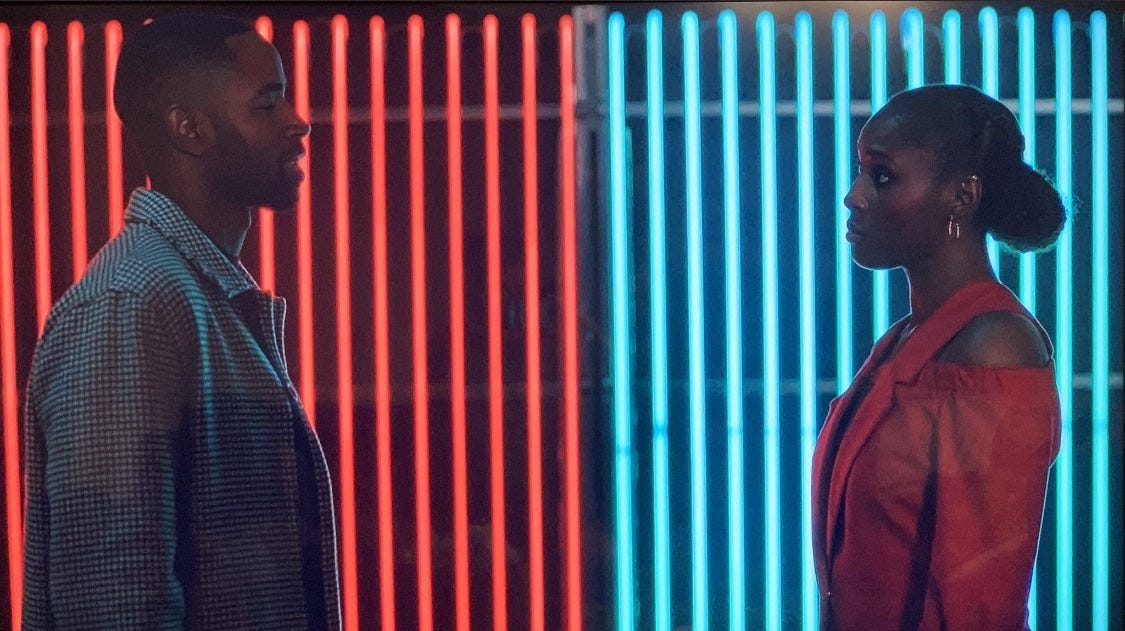I love a good story. Whenever things feel sad or stagnant, immersing myself in others’ lives always helps keep me afloat. Few things excite me more than when a friend leads with, “You’ll never guess what happened…”
Some of the most revealing tales, in a class all by themselves, are the myths around The One That Got Away.
The “one” in question isn’t always a romantic love, although that certainly counts. It could be a job, a home, a missed connection. The jacket you spied on clearance, opted not to buy, and haven’t stopped thinking about since. That ridiculously named cryptocurrency you didn’t invest in earlier. The words you didn’t say. The choice you didn’t make.
We all carry things that for whatever reason — timing, distance, forces of the universe — didn’t work out. They are doomed to the realm of fiction, but because we once glimpsed them, the shape of their absence feels real. How do you reconcile the appearance of old dreams in the rearview mirror? Objects are not as idyllic as they appear.
For me, the fascinating thing about the one that got away isn’t the unfolding narrative of how it came to be, but rather where we assign that label in the first place. (When you hear “the one that got away,” what comes to mind?) The places where we harbor regret can tell us a lot about the future we’d like to inhabit. We cannot rewrite the past, but we can use it to inform our actions in the days to come.
When I hear this phrase, one person comes to mind — a long ago romance, in what feels like another lifetime. From the night we met, I knew that it was fated to end. Not because of some gross incompatibility, but because that was the most romantic outcome.
This person subscribed to Romance, as an ideal. They wanted a unicorn — the much-maligned manic pixie dream girl, big screen version of love — thrilling, passionate, uncomplicated but never boring. At some point, every love story must enter the realm of reality (even a unicorn ceases to be magical when it leaves its dirty dishes in the sink). But nothing is more romantic than the wistful yearning for what might have been.
There’s a reason the one that got away is such a compelling trope. As the characters wallow in nostalgia and longing, we can safely tap into our own. Gatsby and Daisy. Issa and Lawrence. Harry and Sally. Summer and whatever the hell his name is in 500 Days of Summer. In Hollywood, the one that gets away often returns just in time for a storybook ending. Reality is another story.
The dictionary tells us that romance is “a feeling of excitement and mystery” — by its very definition, it cannot be fully known. Mystery does not dwell within the same four walls, day in and day out, over the course of a global pandemic. Mystery, in all its thrilling possibility, has very little to do with love.
If ever I am wracked with regret over an outcome, I try to pick it up and examine it from all angles, like an object in a thrift shop, until I come to see it differently. Inevitably, what I discover is that I did the best I could with the knowledge I had at that moment. The one that got away was never meant to be ours, but the wisdom it can offer us was.
As I was writing this, I heard a small child playing on the sidewalk outside my window, belting out that famous chorus from the musical Annie, “Tomorrow, tomorrow, I love ya tomorrow, you’re always A DAY A-WAAAY!” It would appear she does not know any of the other lyrics, just those, which she sang on an endless loop. By the fifth or sixth time, I stopped typing to ponder if there was a message in there. And I think there is.
Straight from the mouth of one who is too young to know regret, but is very musically jazzed about the future, we uncover a different kind of romance. What lies ahead is a question mark, as fictional as what might have been. But the mystery of the future holds promise. That’s a romance I can subscribe to.
Card of the Week
Here is this week’s card for the collective, as well as some thoughts to carry into the days ahead. As most modern readers will tell you, the tarot is not about fortunetelling, nor is it about neat, definitive answers. The cards are simply one path to reflection, a way of better knowing ourselves and others through universal themes. If this reading resonates with you, great! And if not, no worries. Take whatever may be helpful and leave the rest.

Lately, it seems like everyone I’ve talked to has shared something they’re struggling with. Many are grappling with big things — illness, divorce, the loss of a loved one. Though the consensus is that no one is having an easy time right now, everyone feels alone. I wish I could gather up the threads we’re all dangling by and weave them into a functional fabric, a blanket for us to share.
The tarot illustrates universal human experiences and the Four of Cups is no exception. Apathy, anxiety, disappointment, burnout, grief, rage, malaise, exhaustion — if you feel some measure of any of these things, you are not alone.
We know, at least on a rational level, that everyone has private struggles. But when you’re in the thick of navigating your own, that knowledge is cold comfort. It can be hard not to feel like you’ve been dispatched to an island inhabited only by you and your private cloud, while everyone else is off somewhere, making easy choices and reaping the benefits.
The Four of Cups shows a person who has three perfectly lovely cups, all of them upright and full — and a fourth cup, being offered out of thin air. We can’t see what’s in there, but whatever it is, they’re kind of “meh” about it.
Perhaps your current cups didn’t contain the outcomes you were hoping for. Or maybe you have a hard time appreciating them in light of your neighbor, who has fifty cups on prominent display. Perhaps you’re too tired to remember what’s in the f*cking cups, never mind how you feel about them.
There are times when everything feels like a slog. But the Four of Cups would like to remind us that the grass is never greener, even if it appears that way. It might be astroturf. It might be developing root rot that you’re not privy to. Or else it’s a totally different species of grass, and comparison isn’t valid.
The character on the Four of Cups likes to dabble in revisionist history, fantasizing about what went wrong, what could have been. They might feel slighted or misunderstood, but the outside observer knows otherwise. They are on their path, as you are on yours. Help and support is available to them, as it is to you.
To me, the Four of Cups tells a story about how, in any given moment, we only have the capacity to recognize one part of the story. We know where we’ve been, we know where we are, but we can’t yet see how it all connects. We may think we have context, but we don’t. More will be revealed to us soon.
There’s a Taoist story that often makes the rounds about a farmer whose horse runs away. When his neighbors hear the news, they all say, “Such bad luck.”
“Maybe,” replies the farmer.
The next day, the horse returns, bringing three wild horses with it. “Such good luck!” say the neighbors.
“Maybe,” replies the farmer.
The next day, the farmer’s beloved son tries to ride one of the wild horses, is thrown, and breaks his leg. “Such bad luck,” say the neighbors.
“Maybe,” replies the farmer.
The next day, military officials come to the village to issue a draft for the army, but pass over the injured son. “Such good luck,” say the neighbors.
“Maybe,” replies the farmer.
Much like the character on the Four of Cups, we don’t actually know what’s good and what’s bad. We only think we do. Life can train us to operate from a guarded place, to adopt a cynical view. We place judgment on what we see in our cups, but that’s never the full picture.
People talk a lot about living in the now, because the present moment is all there is. Others talk about the future, maintaining hope for a better tomorrow. The Four of Cups walks that balance. It asks us to count our blessings — to open our awareness enough to see what’s right in front of us, in those three known cups. It also asks us to stay open to whatever might be waiting in the wings.
That brings us to the biggest question posed by this card: What’s in that other cup?
The fourth cup is full of possibilities. It’s the mystery waiting just outside the frame. The blessing in disguise might still seem like a curse, but the story is always unfolding. We may not be able to see it just yet, but that doesn’t make it any less true. Sometimes, all we can do is trust the process. To greet what’s coming over the horizon, knowing that wherever we’re headed is where we need to go.
Thank you so much for reading! If you enjoyed this letter and would like to receive future installments in your inbox every Sunday, please consider becoming a subscriber.







Always look forward to your weekly email and insights, your words feel like a big hug or words of advice from a close friend. Thank you for weaving that blanket for us all.
Good lord. You’re such a good writer. First time commenter here, but have been reading for some months. This one made me look at things differently and gave me some hope for the future. So thanks!